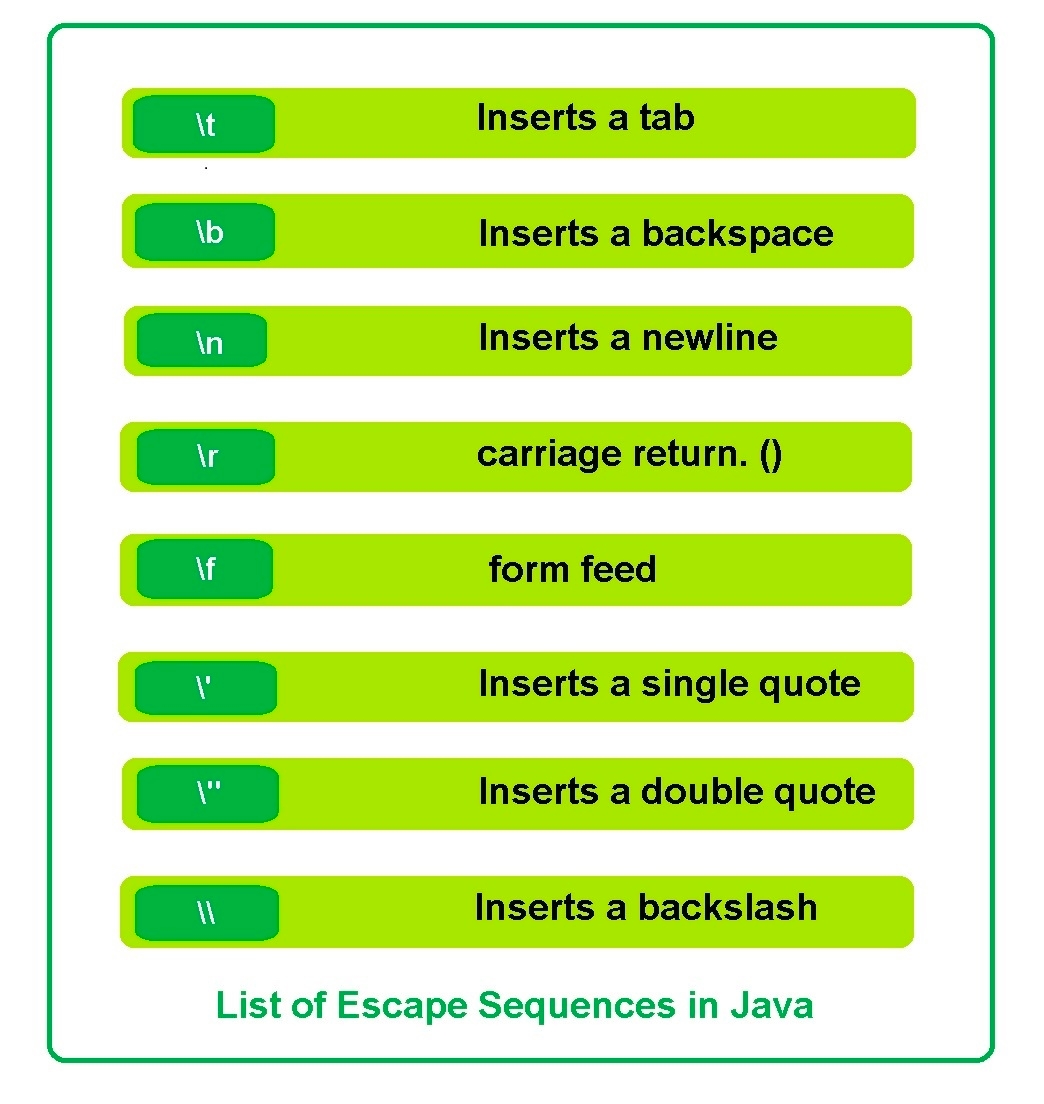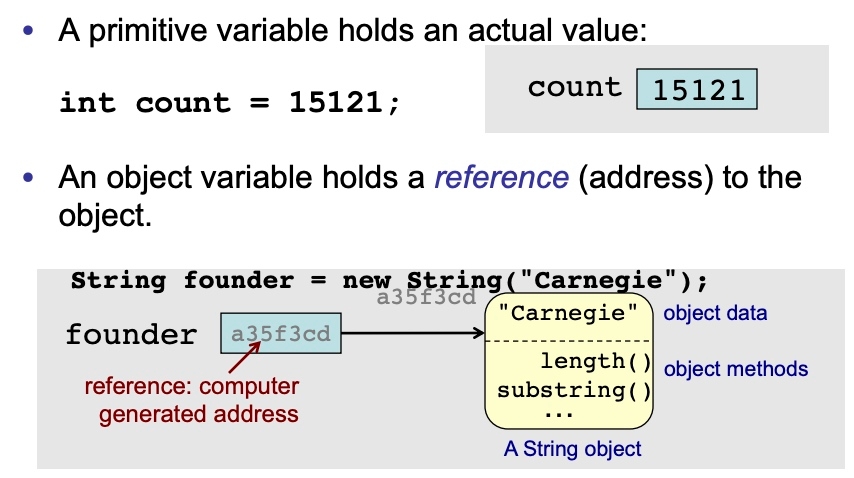[course04] 02 String
[course04] 02 String
Strings
String advice;
advice = "Seize the day!";
String day = "new day";
String username = new String("Joh");
username = "Harry";
System.out.print("The number of characters in ");
System.out.print("the string \"Hello World\" is ");
System.out.println( "Hello World".length() );Java escape sequence

String is a sequence of (unicode) characters
Object vs Primitive Data

immutable feature of String
The concatenation operator
use equals to compare String
Substring
Replacing Characters
Compare the lexicographical order of two strings
Enums
Multiline Strings
Letter Counter
Java Version
Python Version
String demo
Last updated